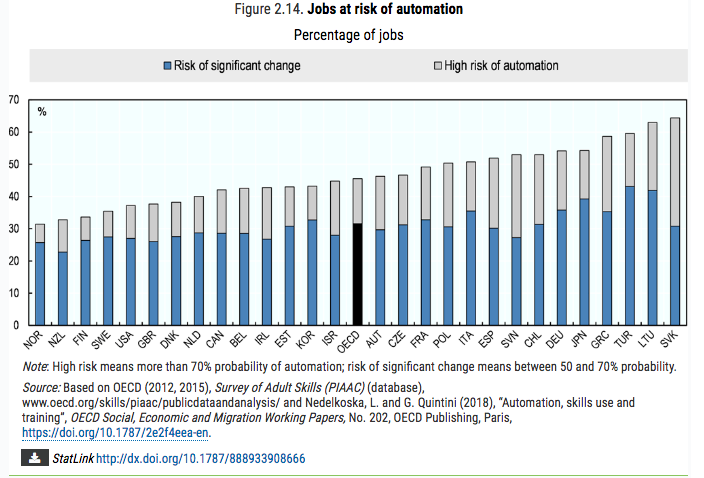An OECD report studies how the ongoing digital transformation is affecting people’s lives and jobs.
Less than 5% of occupations are 100% automatable, according to estimates. However, 30% of the work involved in most jobs could be carried out by machines.
The labour market effects of the digital transformation are among the most significant for people’s well-being.
As job skills and labour market composition are set to evolve with the digital disruption, the nature of work for many people is set to fundamentally change.
Despite fears for the automation, there is little evidence so far that technological change has led to a net loss of jobs, but it has come imperative to understand the rapid transformation that is at stake as the emergence of digital technologies has gone in parallel with steadily rising employment rates in most OECD countries.
This is why OECD has published the report “How’s Life in the Digital Age? Opportunities and Risks of the Digital Transformation for People’s Well-being”, where it studied which countries can most see their industries and jobs take a blow due to automation.
According to these estimates, the risk of job automation is relatively low in Norway, New Zealand, Finland and the United States and is highest in Slovakia, Lithuania and Turkey.
The next frontier
The digital transformation is often described as the third defining moment in humankind’s history, after the Neolithic Revolution and the Industrial Revolution (e.g. Harari, 2018).
In a relatively small number of years, it has changed the way people work, consume, communicate and learn about the world. People now have a digital life and a digital identity, and much more is still to come.
People’s lives are set to change in both good and bad directions and in most of its dimensions. We shall see.
“Will robots take my job?” in now more than a logical question, but you can ask it here thanks to Carl Benedikt Frey and Michael A. Osborne, who after publishing a report titled “The Future of Employment: How susceptible are jobs to computerisation?”, extracted the jobs and the probability of automation from the report and have made it easy for you to search.













